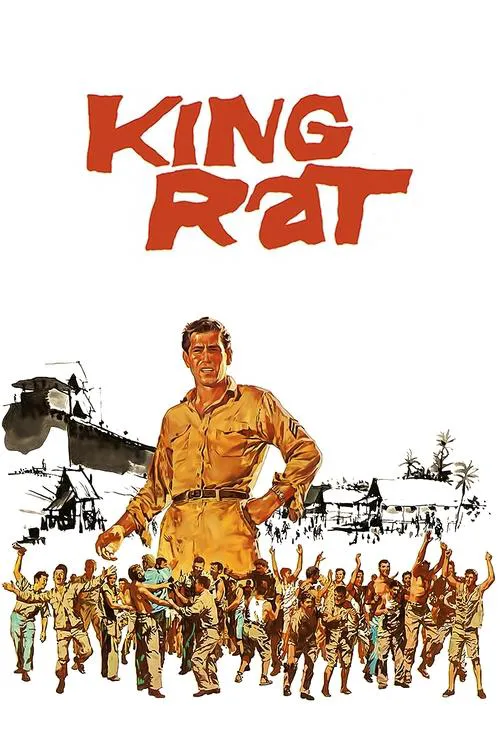King Rat

Plot
Set against the backdrop of the infamous Changi prison camp in Singapore, where Allied POWs were held captive by the Japanese during World War II, King Rat is a gripping drama that explores the complexities of human nature amidst the harsh realities of war. The film tells the story of Cpl. King (played by George Segal), an American non-commissioned officer who has found ways to thrive in the midst of the prison camp's dire conditions. King's story begins as the Japanese capture Singapore in 1942, marking the beginning of a three-and-a-half-year ordeal for the Allied prisoners of war. The camp is a harsh and unforgiving environment, with inadequate food, poor living conditions, and constant fear of punishment or death at the hands of their captors. Amidst this chaos, King manages to establish himself as a sort of de facto leader among the American prisoners, using his wit and charm to acquire food, cigarettes, and other precious commodities. King's success is based on a shrewd understanding of the prison's dynamics, as well as his ability to build relationships with other prisoners and even with some of the Japanese guards. He becomes particularly close to Major Gibson (played by Tom Courtenay), an upper-class British officer who is initially wary of King but comes to admire his irrepressible spirit and entrepreneurial drive. As King and Gibson's friendship deepens, they begin to collaborate on a range of schemes and ventures designed to alleviate the camp's hardships. King uses his connections to smuggle in contraband, including food, liquor, and other essential items, which he then sells to his fellow prisoners at inflated prices. In return, Gibson uses his social standing to facilitate King's activities, helping to smooth over any potential conflicts with the other prisoners or the Japanese authorities. Through King's story, the film raises important questions about the nature of survival and human resilience in the face of adversity. How do people respond in situations where the very basics of existence are constantly threatened? Do they become hardened, cynical, and isolated, or do they find ways to connect with others and maintain a sense of hope and optimism? King's friendship with Gibson suggests that even in the most inhospitable of environments, it is possible to form genuine connections and find ways to thrive. One of the most striking aspects of the film is its portrayal of the complex moral dynamics at play in the camp. King's actions are often morally ambiguous, and it is difficult to determine whether he is a hero or a villain. On the one hand, he provides much-needed aid and comfort to his fellow prisoners, using his resourcefulness to improve their lives. On the other hand, his willingness to engage in black market trading and exploitation raises questions about his motivations and values. The film also touches on the racial and social dynamics within the camp. King's American nationality and British social connections give him an advantage over other prisoners, some of whom resent his privileged position. The British are often depicted as stuffy, upper-class and out of touch with the more egalitarian American spirit. Conversely, the film portrays a rather negative image of the Japanese soldiers who are portrayed as cruel, unfeeling, and racist. Throughout the film, the acting is superb, with Segal delivering a nuanced and engaging performance as King. Courtenay is also excellent as Gibson, bringing a perfect blend of wit and vulnerability to his portrayal of the aristocratic officer. The film's direction is equally impressive, with a keen eye for atmosphere and a strong sense of pacing. Ultimately, King Rat is a powerful exploration of the human condition, set against the harsh and unforgiving backdrop of the Changi prison camp. The film raises important questions about survival, morality, and the nature of human relationships, and it features a standout performance from George Segal as the charismatic and cunning Cpl. King.
Reviews
Recommendations




